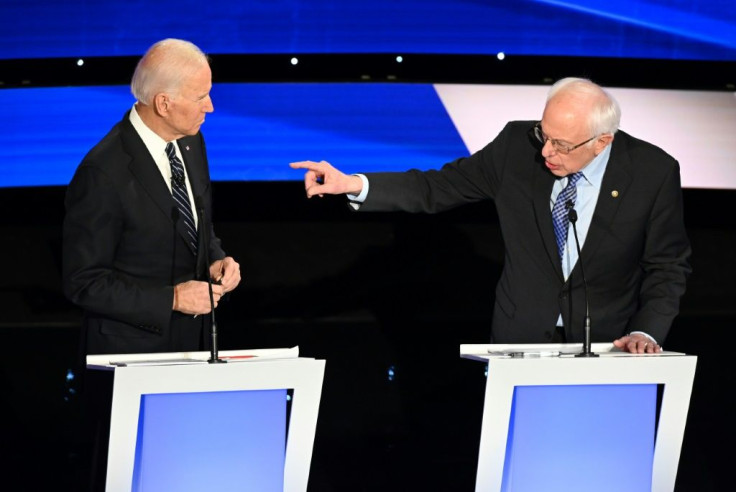With Buttigeig Out, Donors Look Elsewhere While Supporters Turn To Sanders

KEY POINTS
- Buttigieg supporters have said Sen. Sanders would be the second choice
- With Buttigieg out, it will make it harder for Sanders to secure a majority of delegates
- Buttigieg donors will now be looking to support another candidate
After a poor showing in South Carolina, former South Bend mayor Pete Buttigieg announced that he would be ending his campaign for the Democratic presidential nomination. Now the question is: How will this affect the rest of the candidates? For the current front runner, Sen. Bernie Sanders, I-Vt., it may prove fatal.
With one of the top contenders out, where will Buttigieg’s supporters turn? According to a recent poll from Morning Consult, conducted shortly before the former mayor ended his campaign, Sanders was found to be the most popular second choice, with one-third responding that they would throw their support behind him if Buttigieg was no longer an option. Almost one-fifth said they would back former Vice President Joe Biden. And while this might sound like good news for the Sanders campaign, it may actually serve to undermine his chances at securing the nomination.
This is somewhat surprising as it has been generally believed that Buttigieg’s strength was in his appeal to moderate Democrats, especially those who are white and middle class. But it gets more complicated.
The number crunchers at FiveThirtyEight have found that Buttigieg’s exit has harmed Sanders’ chances at winning enough delegates needed to automatically secure the nomination, falling from 28 to 23 percent likelihood. While the Vermont senator is still projected to win a plurality of delegates, it’s been found that the odds of that happening have also dropped slightly.
For a candidate to win the Democratic Party’s nomination, they will need to have claimed one more pledged delegate vote than half of the total available. If this doesn’t happen before the Democratic National Convention in July, it will be up to the superdelegates – whose votes are not tied to candidates based on primary results – to pick the candidate.
For Sanders, that’s bad news. A recent report from the New York Times found that after talking with nearly 100 superdelegates, a large portion have said that they will not back Sanders and will likely vote for Biden.
Buttigieg’s exit from the race also frees up his big money backers to throw their weight behind other candidates. Given Buttigieg’s appeal to moderates, it’s unlikely they will be flocking to fund Sanders; even if they wanted to, the candidate has a strict policy against accepting money from wealthy donors. Instead, they will likely be putting their support behind Biden, who has also positioned himself as a moderate.
Early in the primary, Buttigieg’s campaign enjoyed an unexpected boost in support among moderate Democrats. This was seen in Iowa, where the former mayor came out on top to claim 14 delegates. The momentum that came with that victory, however, quickly evaporated after he failed to garner support from black Americans in South Carolina.
© Copyright IBTimes 2025. All rights reserved.






















